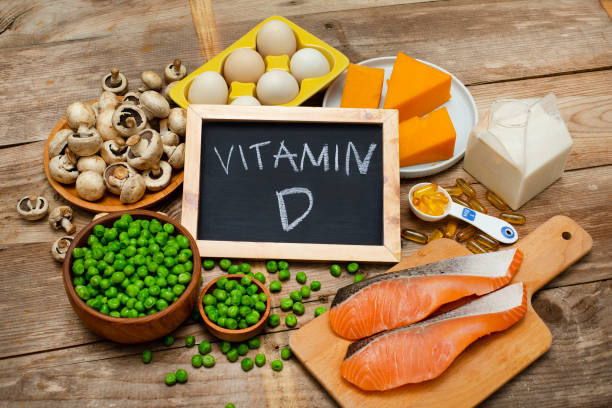Essential Guide to Foods That Boost and Weaken Bone Strength
Discover the key foods that play a crucial role in either enhancing or diminishing bone strength. Learn about the best options to improve bone health and the worst choices to avoid. Uncover valuable insights on how your diet can impact your skeletal wellness in this comprehensive guide.

Which Calcium-Rich Foods Best Support Bone Health?
Calcium serves as the fundamental building block for bones, making it essential for maintaining skeletal strength. Dairy products like milk, yogurt, and cheese are excellent sources, providing both calcium and vitamin D that facilitates calcium absorption. For those following plant-based diets, calcium-fortified alternatives such as almond milk, soy milk, and tofu can be equally beneficial. Dark leafy greens, particularly kale, collard greens, and bok choy, offer bioavailable calcium that’s easily absorbed by the body.
Sardines and canned salmon with bones provide a double benefit – calcium from the edible bones and omega-3 fatty acids that have anti-inflammatory properties supporting bone health. Including these calcium-rich foods in your daily diet ensures your body has the primary material needed for bone maintenance and repair. For optimal absorption, spread calcium intake throughout the day rather than consuming it all at once.
How Do Vitamin D and K Impact Bone Strength?
Vitamin D plays a crucial role as calcium’s partner in bone health, as it enables the body to absorb calcium effectively. Without sufficient vitamin D, even a calcium-rich diet would fail to benefit bone density. Natural food sources of vitamin D include fatty fish like salmon, mackerel, and tuna, as well as egg yolks and mushrooms exposed to UV light. Since vitamin D is naturally present in limited food sources, many products like milk, orange juice, and cereals are fortified with it.
Vitamin K is another unsung hero for bone health, helping to regulate calcium within the bones and preventing its deposition in blood vessels. Vitamin K1 is abundant in leafy greens like spinach, kale, and Brussels sprouts, while vitamin K2 can be found in fermented foods like natto, certain cheeses, and animal products. Research suggests that vitamins D and K work synergistically to optimize bone mineralization and strength, making both essential components of a bone-supporting diet.
Which Protein Sources Best Support Bone Density?
Contrary to some misconceptions, adequate protein intake is vital for bone health. Protein makes up approximately 50% of bone volume and about one-third of its mass. High-quality protein sources like lean meats, poultry, fish, eggs, and dairy products provide the amino acids necessary for bone matrix formation and maintenance. Plant-based options such as legumes, quinoa, and tofu are excellent alternatives that support bone strength while providing other essential nutrients.
Research indicates that older adults with higher protein intake tend to maintain better bone mass and experience fewer fractures. However, balance is key—extremely high protein diets, particularly those heavy in animal proteins, may increase calcium excretion. The ideal approach involves consuming moderate amounts of protein from diverse sources alongside plenty of fruits and vegetables to neutralize any potential acid load and support optimal bone density.
What Minerals Beyond Calcium Are Critical for Bones?
While calcium receives the most attention, several other minerals play crucial roles in maintaining bone integrity. Magnesium, found in nuts, seeds, whole grains, and dark leafy greens, helps activate vitamin D and is essential for bone crystal formation. Approximately 60% of the body’s magnesium resides in our bones, highlighting its importance for skeletal health.
Phosphorus works alongside calcium in bone formation and can be found in foods like dairy, meat, fish, nuts, and whole grains. Zinc supports bone-building cells and protein synthesis, with sources including oysters, red meat, poultry, beans, and nuts. Manganese, copper, and boron are trace minerals that contribute to bone matrix development and mineralization. A varied diet rich in whole, unprocessed foods typically provides these essential minerals in appropriate amounts, supporting comprehensive bone maintenance throughout life.
Which Foods Should You Avoid for Better Bone Health?
Certain dietary choices can actively undermine bone strength, even when you’re consuming bone-supportive nutrients. Excessive sodium intake promotes calcium excretion through urine, potentially leading to bone loss over time. Processed foods, canned soups, and fast food are typically high in sodium. Similarly, foods and beverages with high phosphate additives—common in dark sodas, processed meats, and commercially prepared foods—can disrupt the body’s calcium-phosphorus balance.
Excessive alcohol consumption interferes with vitamin D metabolism and calcium absorption while directly affecting bone-forming cells. Caffeine, particularly in large amounts, can increase calcium excretion. While moderate coffee consumption (1-2 cups daily) appears safe for bone health, excessive intake may be problematic, especially in those with inadequate calcium intake. Extremely high protein diets without sufficient fruits and vegetables can create metabolic acidity that may leach minerals from bones. Balance is key when considering these potential bone-depleting factors in your diet.
How Can You Create an Optimal Bone Health Eating Plan?
Developing a bone-friendly eating plan involves strategic food combinations that maximize nutrient absorption while minimizing interference. The Mediterranean diet pattern has been associated with better bone density outcomes, featuring abundant fruits and vegetables, moderate protein from diverse sources, healthy fats from olive oil and fish, and limited processed foods. The DASH diet, originally designed for heart health, also supports bone strength with its emphasis on fruits, vegetables, whole grains, and low-fat dairy.
For personalized guidance, consider consulting a registered dietitian who can tailor recommendations based on your age, gender, health status, and specific needs. Meal timing can also impact bone health—spacing calcium intake throughout the day improves absorption compared to consuming it all at once. Remember that dietary strategies for bone health should complement other lifestyle factors like regular weight-bearing exercise, adequate vitamin D exposure, avoiding smoking, and limiting alcohol consumption.
This article is for informational purposes only and should not be considered medical advice. Please consult a qualified healthcare professional for personalized guidance and treatment.




